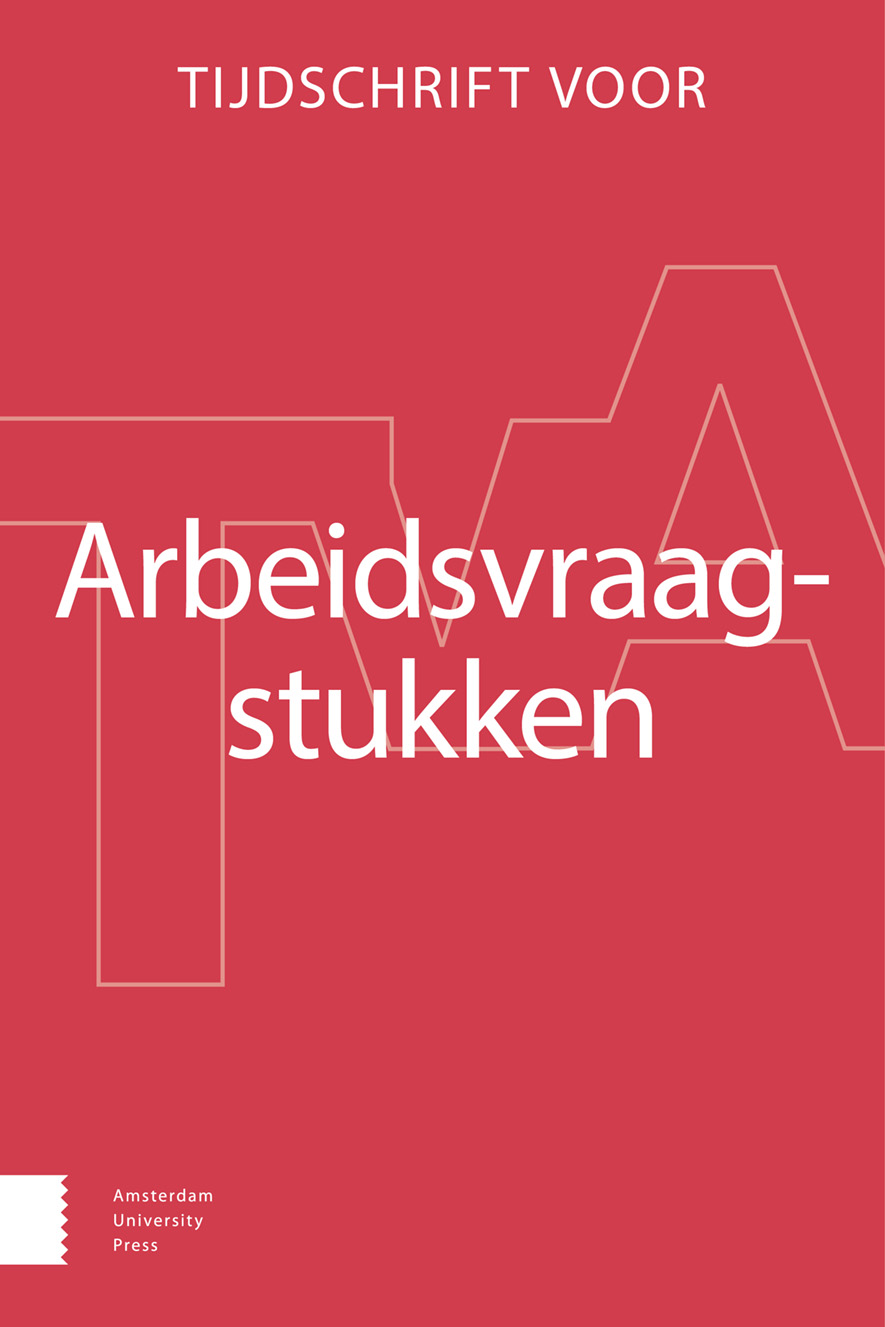-
oa Loonvorming in tijden van crisis
- Amsterdam University Press
- Source: Tijdschrift voor Arbeidsvraagstukken, Volume 28, Issue 2, Jun 2012,
Abstract
Wage formation in times of crisis
The article studies how wage formation in the Netherlands developed since the economic crisis of the end of 2008. Employers’ organisations and trade unions responded to the crisis with a historic novelty. They broke up the national framework agreement for 2009 and negotiated a new framework better adapted to the new conditions. This so-called Spring Agreement 2009 encouraged negotiators for new collective contracts to moderate wage growth. Half a year later the average wage increase had indeed declined to 1%. Inter-sectoral differences in economic development hardly played a role in the wage negotiations, but the expiration date of the collective contract was important. Collective contracts agreed upon before the Spring Agreement show higher wage increases than collective contracts established after the Spring Agreement. Numbers confirm that social partners did not break up collective contracts (unless a bankruptcy is near), but followed the centrally agreed framework in negotiations for a new collective contract. Consequently, a collective wage freeze was agreed upon for more than two million employees in about 30 percent of the collective agreements. In exchange, these employees received extra holidays, a higher personal benefit budget and/or an incidental benefit. In some collective agreements parties did agree a conditional collective wage increase, dependent on business results. All in all, in the wage formation process Dutch corporatism reacted quickly and adequately to the new conditions.


